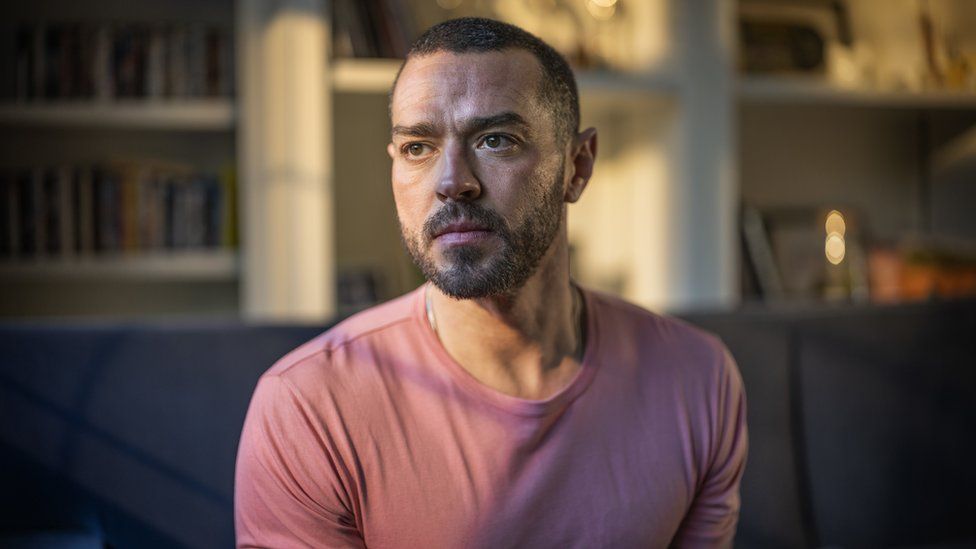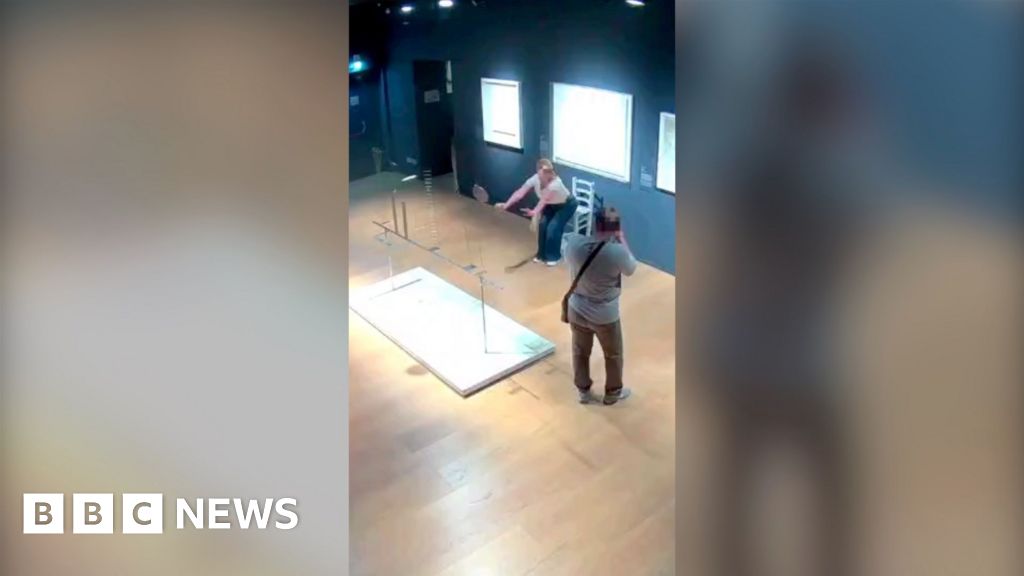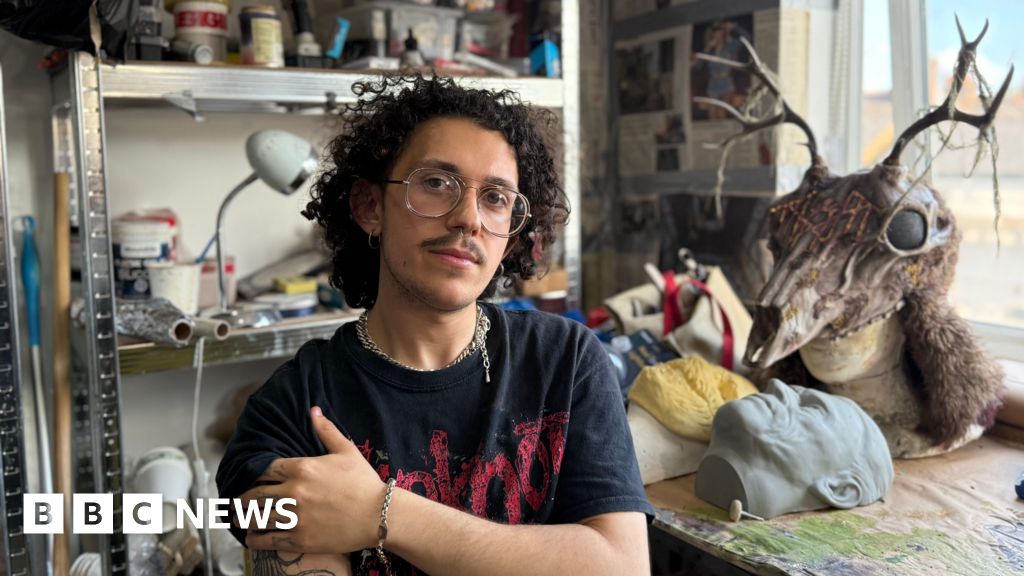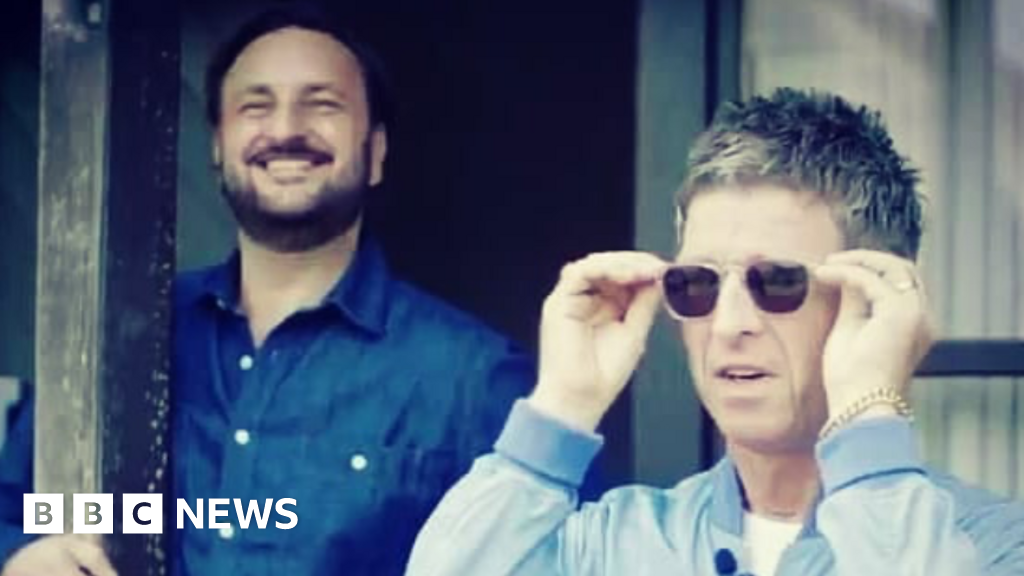ARTICLE AD BOX

"When I'm in active addiction, all I care about is me," says Busted's Matt Willis
The Busted musician tells the BBC the "ripple effect of addiction is huge" on families and loved ones.
When Matt Willis is going through a relapse, he describes it as a "complete loss of control".
Something switches in his brain when he drinks alcohol or takes drugs - and his only priority is consuming more. "Something else takes over," he says. "I can't turn that switch off."
He then finds himself inside a cycle of unhappiness and shame that he can't escape.
There have been times when he couldn't get to midday without getting drunk - and he was taking six grams of cocaine a day. By his 20s, he was completely addicted to alcohol and drugs.
Addiction is "exhausting, tiring, all-consuming," Matt says. "It's not an easy way out. It's really hard and horrible."
The Busted musician speaks about his experience with addiction in the BBC One documentary Matt Willis: Fighting Addiction. In it, he also explores the impact on the people around him.
"When I'm in active addiction, all I care about is me," he says, adding that his mindset becomes "selfish and self-absorbed".
Matt says his addiction has left emotional scars on his wife, TV presenter Emma Willis. "I loved her with all my heart but I couldn't stop," he says, "and nothing she could say or do would make me stop."
'Incredibly heavy'
Matt and Emma met while Busted - a pop-punk band with hits including What I Go to School For, Year 3000 and Air Hostess - was appearing on the music channel MTV.
Emma interviewed the band and the couple eventually started dating.
When they first met, Matt was a lot of fun to be around, Emma remembers, but his issues with alcohol and drugs became apparent even before they got married. He was in rehab just five weeks before their wedding day.
Matt, who started drinking in his early teens after a difficult childhood, has been to rehab four times.
Emma recalls times when she'd drive around local pubs trying to find him after he didn't return home at night.
She says living with Matt could be unpredictable and anxiety-inducing - and she feared he might die.
"It's not easy," Emma says. "It's been incredibly heavy at times."
TV presenter Emma Willis says living with Matt's addiction has been "incredibly heavy"
Matt, who has now been sober for more than five years, describes the impact on loved ones as a "forgotten piece of the puzzle" when it comes to addiction.
"It's so much bigger than just the addict," he says.
Family and friends can often face things like stress, abuse, isolation, mental health difficulties and financial strain, says Vivienne Evans, chief executive of Adfam, a national charity tackling the effects of drugs and alcohol an addict's wider circle.
She adds that, too often, attention and support is given to those with the drug or alcohol problem while the needs of family members, "the ones bearing the brunt of it all, are forgotten".
"Many families suffer in silence," she says.
Adfam research from 2021, that sampled more than 2,000 people, suggests four million adults in the UK are dealing with the negative impacts of a friend or family member's drinking - while one and a half million are negatively affected by drug use.
The Busted singer opens up about his struggles with addiction and the pressure it puts on his family, as well as looking into what helps him and others stay clean.
Matt says reflecting on how his addiction has affected Emma has, at points, left him "in pieces".
"She was so focussed on keeping me clean that she neglected her care, and I did too," he says.
Emma and Matt have three children - and when he describes how he's nervous about his eldest child watching the documentary, his voice breaks and tears come to his eyes.
"It's going to be really hard to see her dad like that and what her mum had to deal with.
"But I think nothing should be swept under the carpet. We have to be as honest and open as possible."
'Fun had gone'
The Busted trio - Matt together with fellow band members James Bourne and Charlie Simpson - secured four number one hits, won two Brit awards and performed around the world.
Image source, Getty / JMEnternational
Image caption,Busted members Matt, left, together with Charlie Simpson and James Bourne are going back on tour in September
But it was on tour that Matt's addiction would often get out of control. And it wasn't glamorous or rock 'n' roll, he says. "The fun had gone for a long time."
Looking back, Charlie says he never saw the "darker undercurrents" of Matt's addiction. "I was not aware at all of how bad things were," he says.
Matt, 40, says ideas around masculinity stopped him from talking about his emotions and what he was going through.
"There is a real problem with the mentality that you've just got to 'man up'. Those kinds of sayings really play into the psyche of boys when they're growing up."
Busted's Charlie Simpson says he never saw the 'darker undercurrents' of Matt's addiction
Busted are going back on tour in September but Matt says he's confident things will be different this time.
"I've been really honest with the band and everyone knows what I'm dealing with. Everyone wants to help."
His rider for this tour, for example, is decidedly health-conscious: protein powder, nuts, berries and protein bars.
Matt, who has attended therapy, says journalling and writing a daily gratitude list has been helpful for his sobriety.
And Matt describes music as a way to escape, too. Until now, he hasn't written many songs about addiction, "because it's not very Busted," he laughs. "But who knows what's going to happen now?"
How to support a loved one dealing with addiction
Adfam's Vivienne Evans says there isn't enough specific support for families and friends of people dealing with addiction.
But she says, despite the stigma that often surrounds addiction, there are some things people can do, including:
- Making sure you're putting yourself first, by setting boundaries and taking care of your own mental health needs.
- Getting information on the nature of addiction, from addiction-specific charities.
- Seeking support from GPs, drug and alcohol treatment services and peer support groups, such as Al-Anon. Informal support can be helpful, too, like finding a friend in the same position and meeting for a coffee.
If you, or someone you know, have been affected by addiction, the following organisations via the BBC Action Line may be able to help.
Watch Matt Willis: Fighting Addiction on Wednesday 17 May, 21:00 on BBC One and on BBC iPlayer.
BBC images courtesy: Twofour / Phil Sharp

 2 years ago
62
2 years ago
62








 English (US) ·
English (US) ·